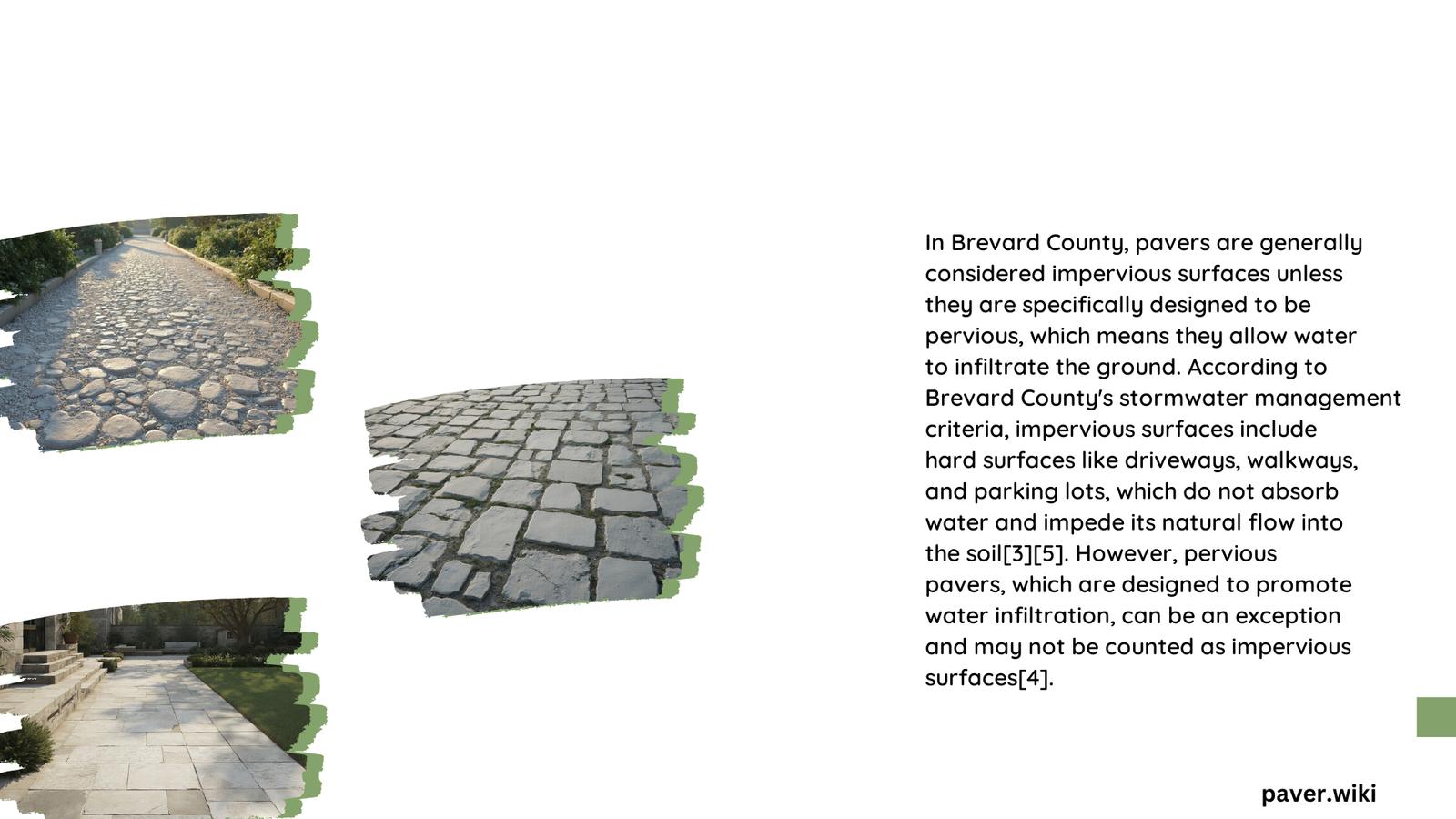In Brevard County, pavers are a complex surface classification that depends on their design and material composition. While traditional solid pavers are typically considered impervious surfaces, permeable pavers offer an innovative solution that allows water infiltration, potentially reducing stormwater runoff and meeting sustainable development practices. Understanding these nuances is crucial for homeowners, contractors, and developers seeking compliance with local environmental regulations.
What Defines an Impervious Surface in Brevard County?
An impervious surface in Brevard County is a compacted or covered area highly resistant to water infiltration. This definition encompasses:
- Roofs
- Sidewalks
- Traditional paver stones
- Compacted clay surfaces
- Concrete and asphalt structures
How Do Different Paver Types Impact Surface Classification?
| Paver Type | Water Infiltration | Impervious Surface Status |
|---|---|---|
| Traditional Solid Pavers | Minimal to None | Considered Impervious |
| Permeable Pavers | High | Potentially Non-Impervious |
| Interlocking Concrete Pavers | Variable | Depends on Design |
What Makes Pavers Impervious or Permeable?

Characteristics of Impervious Pavers
Impervious pavers typically:
– Block water penetration
– Create significant surface runoff
– Require additional drainage solutions
– Contribute to stormwater management challenges
Characteristics of Permeable Pavers
Permeable pavers are designed to:
– Allow water to pass through surface
– Reduce stormwater runoff
– Promote natural ground absorption
– Minimize environmental impact
What Are Brevard County’s Specific Regulations?
Brevard County enforces strict guidelines regarding surface imperviousness:
- Maximum impervious surface coverage varies by zoning district
- Projects must comply with Surface Water Improvement Division requirements
- Stormwater management systems are critically evaluated
- Permeable solutions are encouraged for sustainable development
How Do Pavers Impact Local Drainage Systems?
Impervious pavers can:
– Increase surface water runoff
– Potentially cause localized flooding
– Transport pollutants into water bodies
– Require complex drainage infrastructure
Conversely, permeable pavers help:
– Reduce runoff volume
– Filter potential contaminants
– Support groundwater recharge
– Mitigate environmental stress
What Should Property Owners Consider?
When selecting pavers in Brevard County, property owners should:
– Consult local engineering departments
– Understand specific zoning restrictions
– Evaluate long-term environmental impact
– Consider permeable alternatives
– Obtain necessary permits
Professional Recommendations
Experts recommend:
– Conducting site-specific assessments
– Choosing pavers aligned with local regulations
– Prioritizing sustainable drainage solutions
– Consulting professional engineers
Technical Insights
The imperviousness of pavers depends on:
– Material composition
– Installation methodology
– Joint spacing
– Underlying substrate
– Water transmission capabilities
Conclusion
While traditional pavers are generally considered impervious surfaces in Brevard County, innovative permeable designs offer alternative solutions that align with environmental sustainability goals.
Reference:
– Brevard County Engineering Department
– Florida Stormwater Association Guidelines
– UF/IFAS Sustainable Development Resources
